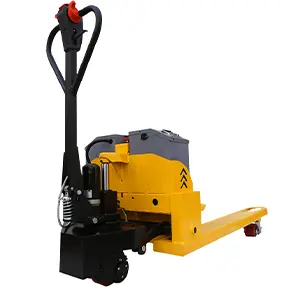


The Importance of Crane Weighing in Modern Construction
Crane weighing is an integral aspect of construction and heavy lifting operations, where precision and safety are paramount. As projects become increasingly complex and the equipment more sophisticated, the practice of accurately determining the weight of loads lifted by cranes has grown more critical than ever. Understanding the importance of crane weighing not only enhances operational efficiency but also significantly reduces the risks associated with lifting operations.
In the construction industry, cranes are essential for moving heavy materials, machinery, and structural components. However, lifting beyond the crane's rated capacity can lead to catastrophic failure, resulting in damage to equipment, injury to workers, and costly project delays. Therefore, accurate crane weighing is crucial to ensure that the loads being lifted do not exceed the crane’s specifications.
How Crane Weighing Works
Crane weighing systems typically incorporate various technologies designed to measure the load being lifted. One common method involves load cells, which are sensors that convert force or weight into an electrical signal. When a load is applied, the load cell measures the force exerted, providing an accurate reading of the weight. This information is then relayed to the crane operator, who can monitor the load in real-time, ensuring that it falls within safe lifting limits.
Modern crane weighing systems often integrate digital displays and can be calibrated for various types of loads, making them versatile for use in numerous applications. For cranes equipped with wireless technology, the data can be transmitted to remote displays, allowing for a flexible approach to monitoring lifting operations.
The Benefits of Accurate Weighing
1. Enhanced Safety The primary advantage of crane weighing is improved safety. By ensuring that loads remain within the crane's lifting capacity, the risk of accidents is significantly minimized. Operators can confidently lift heavy materials without fear of overloading, thereby protecting crew members and equipment.

2. Increased Efficiency Accurate load measurements enable more efficient work processes. When operators are aware of the exact weight they are handling, they can plan lifts more effectively, reducing downtime and streamlining workflow. This leads to better project management and ultimately shorter project completion times.
3. Compliance with Regulations Many industries are subject to regulatory frameworks that mandate specific safety protocols, including load monitoring. Implementing crane weighing systems can help organizations comply with these regulations, avoiding potential fines and legal repercussions while fostering a culture of safety within the workforce.
4. Reduced Damage and Wear Overloading a crane not only poses safety risks but can also lead to increased wear and tear on the equipment. By accurately weighing loads, companies can prolong the lifespan of their cranes and reduce maintenance costs, optimizing their return on investment.
Case Studies and Applications
Several construction projects worldwide have successfully integrated crane weighing systems with positive outcomes. For instance, during the construction of a skyscraper, engineers implemented advanced load monitoring technologies to manage the heavy steel beams being lifted. By using precision weighing, they ensured that each lift remained within the crane’s operational limits, significantly reducing the risk of structural failure and contributing to an on-time project completion.
In the offshore oil and gas industry, vessel cranes face similar challenges. Here, the integration of sophisticated crane weighing systems is critical for safe operations since the loads often vary significantly due to environmental factors like wave motion. Accurate weighing systems provide operators with the essential data needed to adapt to these changes, preserving safety and efficiency.
Conclusion
In conclusion, crane weighing is a vital practice that supports the safety and efficiency of construction and heavy lifting operations. As technology continues to evolve, the capabilities of crane weighing systems will only improve, providing operators with even more accurate and comprehensive data. Companies that prioritize accurate crane weighing can pave the way for safer job sites, improved operational efficiency, and long-term cost savings, ensuring that the construction industry can meet the challenges of tomorrow. By investing in proper weighing systems, businesses can uphold the highest standards of safety, comply with regulations, and achieve successful project outcomes.



